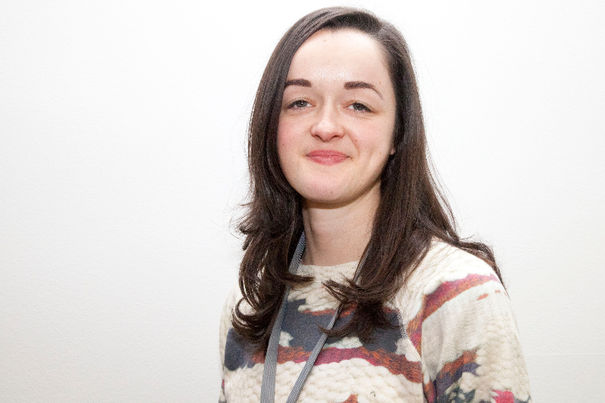Feminist Cinemas and New Ways of Watching
by Julia Cooper Canadian cinema does not want for talent or innovation. From directors Alanis Obomsawin, Sarah Polley, Guy Maddin, and Xavier Dolan, to actors Sarah Gadon and Ellen Page, and a documentary scene (The World Before Her, Stories We Tell, Watermark) that continues to thrive despite our conservative government’s continual slashing of arts funding, Canadian film is worth the price of admission.

Julia Cooper
Toronto, in particular, is #blessed with the Toronto International Film Festival (TIFF) and Hot Docs, smaller scale screenings by MDFF, and whip-smart smart interviews and profiles from The Seventh Art and other local outlets. What Canadian cinema and film commentary do lack—and here Canada is not alone—is an interest in, and commitment to, women working in the industry. A 2013 study of gender inequality in Canadian film and screen reports that of “139 feature films released in 2010 and 2011 in Canada, women comprise less than 20% of the directors and 21% of the screenwriters” (Women in Focus). Women fair no better in Hollywood with 11% of films in 2014 written by women, and 93% of the 250 top earning movies of the year directed by men (Women in Hollywood). That leaves a paltry seven percent of top grossing films directed by women, and those are not odds I like.
As managing editor of the feminist film journal cléo, I cut my teeth on the films of Agnès Varda, Claire Denis, and Sally Potter, and have since followed the emerging careers of indie filmmakers Eliza Hittman and Josephine Decker. This has been a conscious choice to engage with the works of women directors and screenwriters, but to be clear, it is no act of charity. Take for example Canadian directors Andrea Dorfman (Heartbeat) and Chloé Robichaud (Sarah Préfère La Course)— these artists are producing some of the most thought-provoking, intelligent, and formally challenging films out there. They are also producing the most overlooked.
For me, the “feminist perspective” is a capacious and constantly evolving point of view. It is grounded in the belief that there are structural imbalances firmly in place that privilege and foster certain (white, hetero, male) voices over others. We started cléo journal as an antidote to much of the noisy film content being churned out online. We wanted to claim a pocket of the internet for feminists to examine and reflect on the movies that irked, puzzled, or enraptured them. cléo is a place for insightful film commentary—from Canadian and international writers— to land and to inspire new ways of watching.

